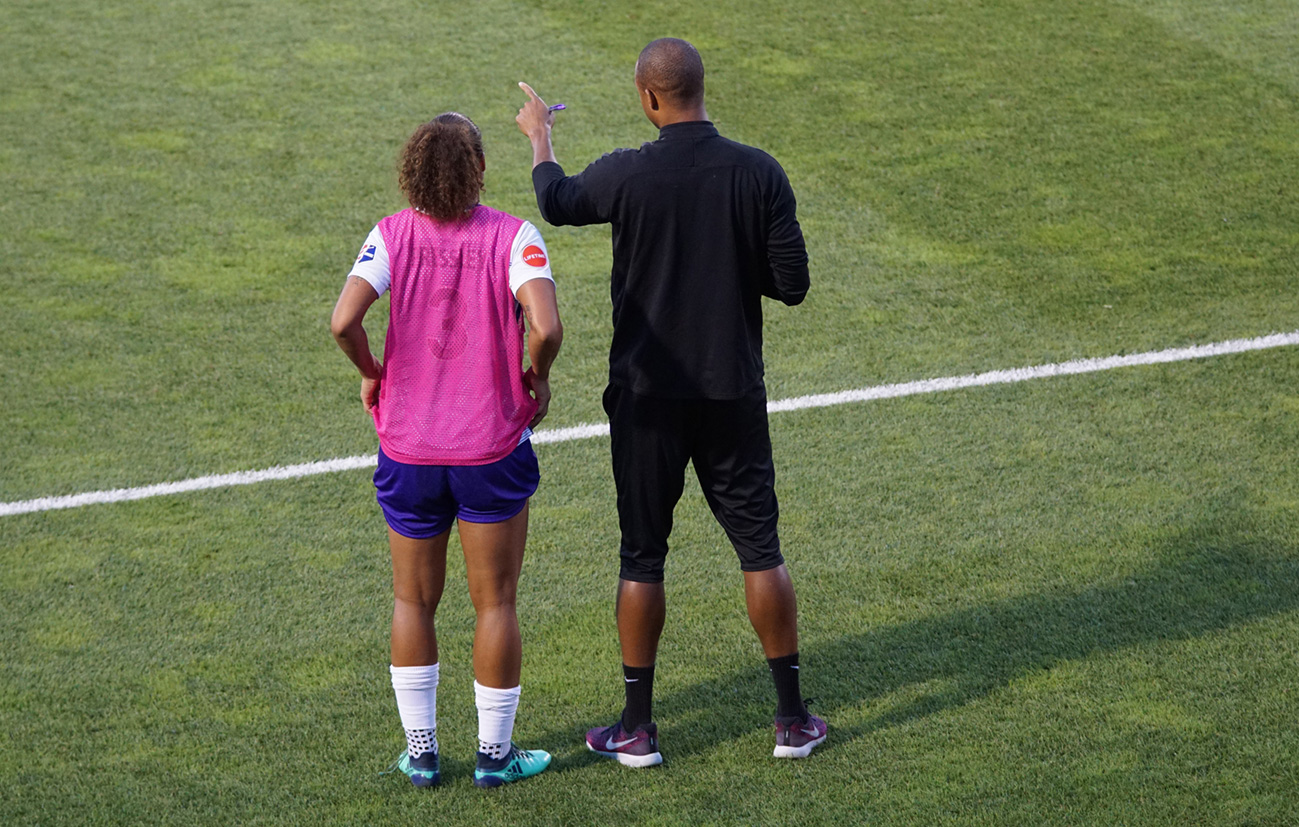Enhancing the Well-Being of Division III Collegiate Athletes During the Pandemic: The Role of Coaches

Published
The COVID-19 pandemic has caused numerous challenges and struggles throughout the world, especially for Division III collegiate student-athletes. According to the NCAA Student-Athlete COVID-19 Well-Being Survey (2020), the majority of student-athletes indicated they experienced "high rates of mental distress since the outset of the pandemic" (p. 8). Collegiate student-athletes have faced cancellation of athletic seasons, isolation from teammates and friends, classes transitioned into virtual learning formats, and daily challenges regarding their future academic and athletic endeavors (Bullard, 2020). In consideration of the impact of COVID-19, collegiate coaches must consider the needs of their student-athletes and communicate with their student-athletes to understand their concerns or desired programmatic needs.
Collegiate Student-Athlete Well-Being During COVID-19
Collegiate student-athletes have reported feeling overwhelmed, sleep issues, and mental exhaustion and loneliness since the beginning of the pandemic, as well as worrying about their health, loved ones, and their future (Bullard, 2020; NCAA, 2020). The American Psychological Association (2020) identified that the stress, anxiety, and sadness college students are experiencing during the pandemic are related to educational delivery changes, responsibilities with family at home, and missing friends.
Research Addressing DIII Collegiate Student-Athletes Having Fall Sports Season Canceled
Bullard (2020) assessed the concerns of DIII collegiate student-athletes' who had their fall sports season canceled. The 246 fall sport student-athletes surveyed indicated that being away from teammates was the most challenging aspect for them, followed by lack of having the necessary resources to train for athletics, lack of optimal resources for academics, financial concerns, and social distancing (Bullard, 2020).
Differences were noticed among fall sport student-athletes and non-fall sport student-athletes regarding the General Anxiety Disorder Scale 7-Item (GAD-7). Specifically, it was found that fall sport student-athletes had higher overall mean scores than non-fall sport student-athletes regarding the following constructs: having trouble relaxing, being so restless it is hard to sit still, and being easily annoyed or irritable (Bullard, 2020).
The Important Role of Coaches
Coaches are in a unique position to understand student-athlete concerns and provide assistance as they continue to navigate through the pandemic. Concerns of Division III fall sport student-athletes included feelings of disappointment and frustration, lack of motivation, worry about the impact this absence will have on team unity, sadness for missing their senior year, and feeling upset to be out of competition for an extended period of time (Bullard, 2020). Coaches need to be aware of these thoughts and feelings in order to develop effective programming and implement modalities to assist their student-athletes' well-being.
Supporting Student-Athletes
- Applaud Self-Awareness and Growth: Coaches need to encourage their student-athletes to reflect on their personal growth during this pandemic. Their resilience during such an unprecedented time translates into their strength and ability to overcome future challenges. Helping athletes recognize their personal development and reflect on the positive may lead to them acknowledging their physical and mental strength, ability to adjust to change, and patience (Bullard, 2020).
- Communicate: Stay open and honest with student-athletes regarding changes in protocol, administrative adjustments, and NCAA regulations. If possible, check-in with each student-athlete weekly to see how they are doing and understand the concerns they might have. Share with the athletic department and other departments on campus the programming requested by their student-athletes.
- The NCAA (2020) indicated desired resources for collegiate student-athletes, including "maintaining level of physical fitness, training for sport while physically distant, academic support resources, and social support" (p.59). Bullard (2020) reported that Division III student-athletes desired programming focused on topics like stress management, anxiety management, coping with being away from teammates, motivational strategies, and financial support. Providing programming related to at least one of these items might be helpful in assisting student-athletes during this time.
- Be an Advocate: Discuss with student-athletes their concerns regarding academics, especially whether or not they have the necessary resources at home to succeed with distance learning. Connect with campus services that could assist with technical support, teaching time management skills, and providing support for engaging in virtual relationship building. Strong programming should be implemented to support collegiate student-athletes' mental and emotional well-being connected to these expressed needs.
The journey of collegiate student-athletes will be unconventional as this pandemic continues. Recognizing the positive role coaches have in their student-athletes’ lives is paramount in developing trusting relationships. Student-athletes place value in coaches that stay involved and keep them updated with evolving situations (Bullard, 2020). Coaches understanding common concerns related to mental health and well-being is necessary to provide effective programming and support.
References
American Psychological Association. (2000, April 14). Coping with COVID related stress as a
student. https://www.apa.org/topics/covid-19/student-stress
Bullard, J. (2020, September 28). The Impact of COVID-19 on the Well-Being of Division III Student-Athletes. Retrieved October 25, 2020, from https://thesportjournal.org/article/the-impact-of-covid-19-on-the-well-being-of-division-iii-student-athletes/
National Collegiate Athletic Association. (2020). NCAA student-athlete COVID-19 well-being
study. https://ncaaorg.s3.amazonaws.com/research/other/2020/2020RES_NCAASACOVID-19SurveyPPT.pdf 1-157.
Share this article:
Published in:





